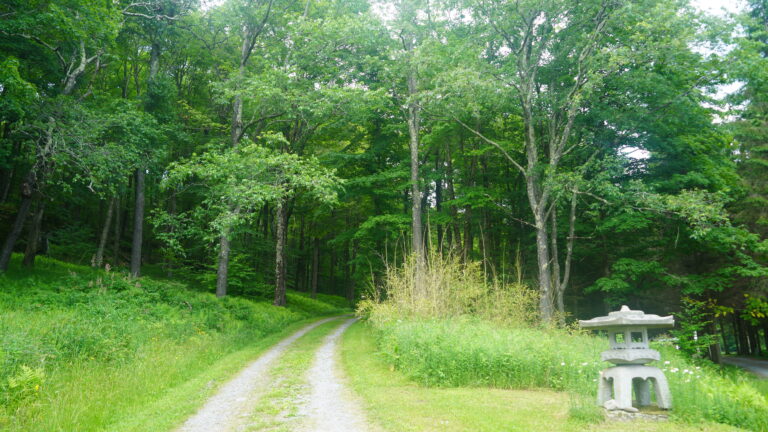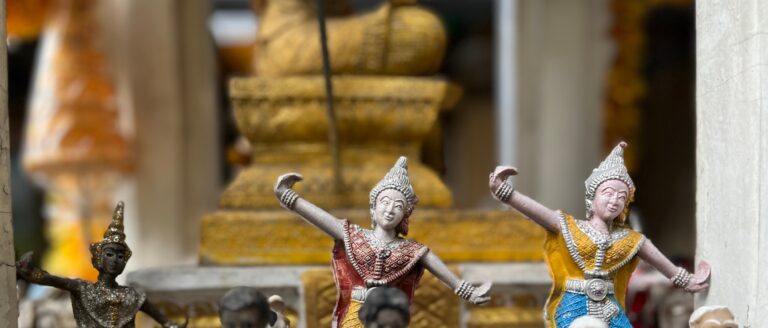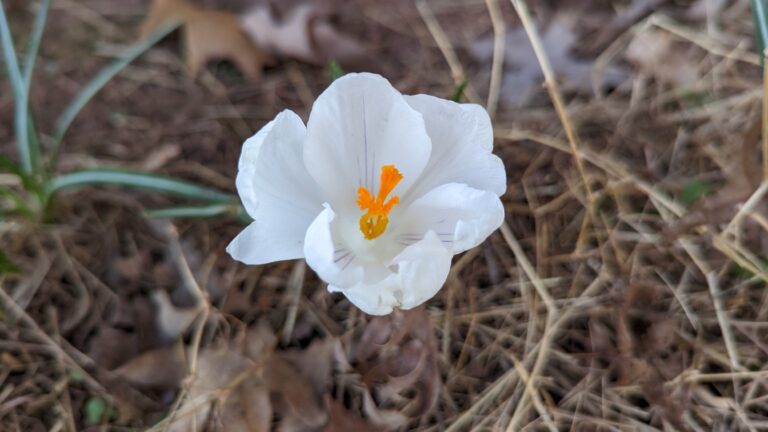by Reishin Denise Leong
My parents who immigrated from China had many Chinese statues around the house but never identified anything special about them. Since I was sent to a Lutheran church to become a Christian, I had no reason to think the statues were anything besides decorations. One statue I loved as a child was the fat, smiling man whose belly I was supposed to rub for good luck according to my mother. How fun it was to discover my lucky charm was a Buddhist monk!
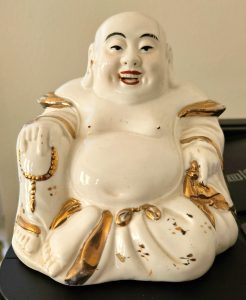
Known as Pu-tai or Budai (Chinese) or Hotei (Japanese), he is often referred to as the “Laughing Buddha.” In real life, he is said to have been a potbellied Chinese monk named Ch’i-t’zu (Qieci) who wandered through towns with a cloth beggar’s sack on his back in the 10th century.
Hotei has emerged in legends as a protector of children, the poor, and the weak; he is often depicted with children, his sack always filled with gifts for them. The Laughing Buddha and his sack represent happiness, generosity, joy, contentment and abundance which were most needed during his time in China as war and political upheaval went on for decades after the fall of the Tang Dynasty.
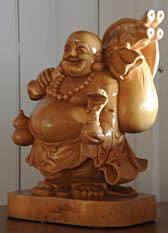
Hotei has been identified as the Bodhisattva Maitreya, the Buddha of the Future, as well as one of Japan’s Seven Lucky Gods and the Chinese Daoist god of abundance. Hotei also makes an appearance on the last panel of the Ten Ox Herding Pictures entitled, “Entering the Marketplace with Bliss-bestowing Hands.”
I have often wondered if Hotei was the predecessor of Santa Claus, but regardless, his joyful and protective presence, whether in 10th century China or in the world now, is a much needed symbol of hope and reminder of our Bodhisattva vows to help and support those in need.
May I become at all times, both now and forever
A protector of those without protection
A guide for those who have lost their way
A ship for those with oceans to cross
A bridge for those with rivers to cross …
And a servant to all in need
For as long as space endures,
And for as long as living beings remain,
Until then may I, too, abide
To dispel the misery of the world.
– Shantideva, The Way of the Bodhisattva
All of us at Hollow Bones Zen wish you the best for this holiday season, and with Hotei’s help, lots of good luck!

